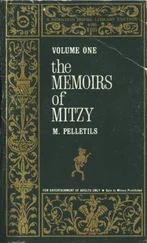Fanny Burney - Cecilia; Or, Memoirs of an Heiress. Volume 3
Здесь есть возможность читать онлайн «Fanny Burney - Cecilia; Or, Memoirs of an Heiress. Volume 3» — ознакомительный отрывок электронной книги совершенно бесплатно, а после прочтения отрывка купить полную версию. В некоторых случаях можно слушать аудио, скачать через торрент в формате fb2 и присутствует краткое содержание. Жанр: foreign_antique, foreign_prose, Зарубежные любовные романы, на английском языке. Описание произведения, (предисловие) а так же отзывы посетителей доступны на портале библиотеки ЛибКат.
- Название:Cecilia; Or, Memoirs of an Heiress. Volume 3
- Автор:
- Жанр:
- Год:неизвестен
- ISBN:нет данных
- Рейтинг книги:5 / 5. Голосов: 1
-
Избранное:Добавить в избранное
- Отзывы:
-
Ваша оценка:
- 100
- 1
- 2
- 3
- 4
- 5
Cecilia; Or, Memoirs of an Heiress. Volume 3: краткое содержание, описание и аннотация
Предлагаем к чтению аннотацию, описание, краткое содержание или предисловие (зависит от того, что написал сам автор книги «Cecilia; Or, Memoirs of an Heiress. Volume 3»). Если вы не нашли необходимую информацию о книге — напишите в комментариях, мы постараемся отыскать её.
Cecilia; Or, Memoirs of an Heiress. Volume 3 — читать онлайн ознакомительный отрывок
Ниже представлен текст книги, разбитый по страницам. Система сохранения места последней прочитанной страницы, позволяет с удобством читать онлайн бесплатно книгу «Cecilia; Or, Memoirs of an Heiress. Volume 3», без необходимости каждый раз заново искать на чём Вы остановились. Поставьте закладку, и сможете в любой момент перейти на страницу, на которой закончили чтение.
Интервал:
Закладка:
He stopt and coloured, but in a quicker voice presently proceeded.
“Trade, also, has had its share in my experiments; for that, in truth, I was originally destined,—but my education had ill suited me to such a destination, and the trader’s first maxim I reversed, in lavishing when I ought to have accumulated.
“What, then, remained for me? to run over again the same irksome round I had not patience, and to attempt any thing new I was unqualified: money I had none; my friends I could bear to burthen no longer; a fortnight I lingered in wretched irresolution,—a simple accident at the end of it happily settled me; I was walking, one morning, in Hyde Park, forming a thousand plans for my future life, but quarrelling with them all; when a gentleman met me on horseback, from whom, at my Lord Vannelt’s, I had received particular civilities; I looked another way not to be seen by him, and the change in my dress since I left his Lordship’s made me easily pass unnoticed. He had rode on, however, but a few yards, before, by some accident or mismanagement, he had a fall from his horse. Forgetting all my caution, I flew instantly to his assistance; he was bruised, but not otherwise hurt; I helpt him up, and he leant ‘pon my arm; in my haste of enquiring how he had fared, I called him by his name. He knew me, but looked surprised at my appearance; he was speaking to me, however, with kindness, when seeing some gentlemen of his acquaintance gallopping up to him, he hastily disengaged himself from me, and instantly beginning to recount to them what had happened, he sedulously looked another way, and joining his new companions, walked off without taking further notice of me. For a moment I was almost tempted to trouble him to come back; but a little recollection told me how ill he deserved my resentment, and bid me transfer it for the future from the pitiful individual to the worthless community.
“Here finished my deliberation; the disgust to the world which I had already conceived, this little incident confirmed; I saw it was only made for the great and the rich;—poor, therefore, and low, what had I to do in it? I determined to quit it for ever, and to end every disappointment, by crushing every hope.
“I wrote to Lord Vannelt to send my trunks to my mother; I wrote to my mother that I was well, and would soon let her hear more: I then paid off my lodgings, and ‘shaking the dust from my feet,’ bid a long adieu to London; and, committing my route to chance, strole on into the country, without knowing or caring which way.
“My first thought was simply to seek retirement, and to depend for my future repose upon nothing but a total seclusion from society: but my slow method of travelling gave me time for reflection, and reflection soon showed me the error of this notion.
“Guilt, cried I, may, indeed, be avoided by solitude; but will misery? will regret? will deep dejection of mind? no, they will follow more assiduously than ever; for what is there to oppose them, where neither business occupies the time, nor hope the imagination? where the past has left nothing but resentment, and the future opens only to a dismal, uninteresting void? No stranger to life, I knew human nature could not exist on such terms; still less a stranger to books, I respected the voice of wisdom and experience in the first of moralists, and most enlightened of men, [Footnote: Dr Johnson.] and reading the letter of Cowley, I saw the vanity and absurdity of panting after solitude . [Footnote: Life of Cowley, p.34.]
“I sought not, therefore, a cell; but, since I purposed to live for myself, I determined for myself also to think. Servility of imitation has ever been as much my scorn as servility of dependence; I resolved, therefore, to strike out something new, and no more to retire as every other man had retired, than to linger in the world as every other man had lingered.
“The result of all you now see. I found out this cottage, and took up my abode in it. I am here out of the way of all society, yet avoid the great evil of retreat, having nothing to do . I am constantly, not capriciously employed, and the exercise which benefits my health, imperceptibly raises my spirits in despight of adversity. I am removed from all temptation, I have scarce even the power to do wrong; I have no object for ambition, for repining I have no time:—I have, found out, I repeat, the true secret of happiness, Labour with Independence.”
He stopt; and Cecilia, who had listened to this narrative with a mixture of compassion, admiration and censure, was too much struck with its singularity to be readily able to answer it. Her curiosity to hear him had sprung wholly from her desire to assist him, and she had expected from his story to gather some hint upon which her services might be offered. But none had occurred; he professed himself fully satisfied with his situation; and though reason and probability contradicted the profession, she could not venture to dispute it with any delicacy or prudence.
She thanked him, therefore, for his relation, with many apologies for the trouble she had given him, and added, “I must not express my concern for misfortunes which you seem to regard as conducive to your contentment, nor remonstrate at the step you have taken, since you have been led to it by choice, not necessity: but yet, you must pardon me if I cannot help hoping I shall some time see you happier, according to the common, however vulgar ideas of the rest of the world.”
“No, never, never! I am sick of mankind, not from theory, but experience; and the precautions I have taken against mental fatigue, will secure me from repentance, or any desire of change; for it is not the active, but the indolent who weary; it is not the temperate, but the pampered who are capricious.”
“Is your sister, Sir, acquainted with this change in your fortune and opinions?”
“Poor girl, no! She and her unhappy mother have borne but too long with my enterprizes and misfortunes. Even yet they would sacrifice whatever they possess to enable me to play once more the game so often lost; but I will not abuse their affection, nor suffer them again to be slaves to my caprices, nor dupes to their own delusive expectations. I have sent them word I am happy; I have not yet told them how or where. I fear much the affliction of their disappointment, and, for a while, shall conceal from them my situation, which they would fancy was disgraceful, and grieve at as cruel.”
“And is it not cruel?” said Cecilia, “is labour indeed so sweet? and can you seriously derive happiness from what all others consider as misery?”
“Not sweet,” answered he, “in itself; but sweet, most sweet and salutary in its effects. When I work, I forget all the world; my projects for the future, my disappointments from the past. Mental fatigue is overpowered by personal; I toil till I require rest, and that rest which nature, not luxury demands, leads not to idle meditation, but to sound, heavy, necessary sleep. I awake the next morning to the same thought-exiling business, work again till my powers are exhausted, and am relieved again at night by the same health-recruiting insensibility.”
“And if this,” cried Cecilia, “is the life of happiness, why have we so many complaints of the sufferings of the poor, and why so eternally do we hear of their hardships and distress?”
“They have known no other life. They are strangers, therefore, to the felicity of their lot. Had they mingled in the world, fed high their fancy with hope, and looked forward with expectation of enjoyment; had they been courted by the great, and offered with profusion adulation for their abilities, yet, even when starving, been offered nothing else!—had they seen an attentive circle wait all its entertainment from their powers, yet found themselves forgotten as soon as out of sight, and perceived themselves avoided when no longer buffoons!—Oh had they known and felt provocations such as these, how gladly would their resentful spirits turn from the whole unfeeling race, and how would they respect that noble and manly labour, which at once disentangles them from such subjugating snares, and enables them to fly the ingratitude they abhor! Without the contrast of vice, virtue unloved may be lovely; without the experience of misery, happiness is simply a dull privation of evil.”
Читать дальшеИнтервал:
Закладка:
Похожие книги на «Cecilia; Or, Memoirs of an Heiress. Volume 3»
Представляем Вашему вниманию похожие книги на «Cecilia; Or, Memoirs of an Heiress. Volume 3» списком для выбора. Мы отобрали схожую по названию и смыслу литературу в надежде предоставить читателям больше вариантов отыскать новые, интересные, ещё непрочитанные произведения.
Обсуждение, отзывы о книге «Cecilia; Or, Memoirs of an Heiress. Volume 3» и просто собственные мнения читателей. Оставьте ваши комментарии, напишите, что Вы думаете о произведении, его смысле или главных героях. Укажите что конкретно понравилось, а что нет, и почему Вы так считаете.












